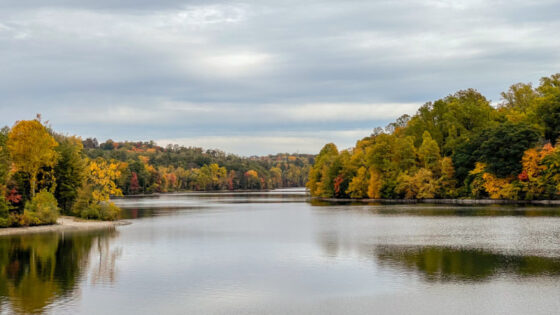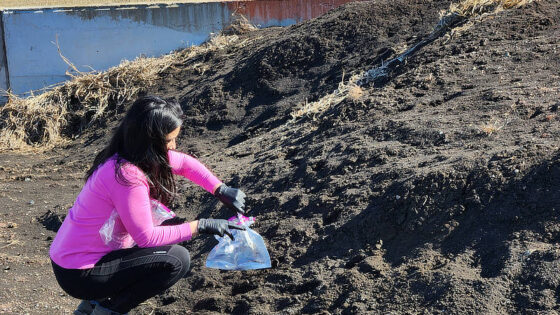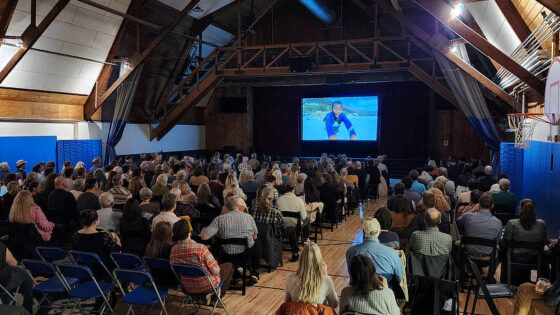By Mandy Nix
Ask anyone what reminds them of summer camp, and you may conjure memories of arrows whistling toward archery targets, cicada songs buzzing even louder than gaga pit rallies, and a new parade of patches decorating Scout uniforms. Add one generous spoonful of freshwater science educators, a wriggling helping of aquatic insects, and a dash of scientists, and you have the first ScoutReach Day Camp of the Chester County Council, Boy Scouts of America (CCCBSA), hosted at Stroud Water Research Center this past August.
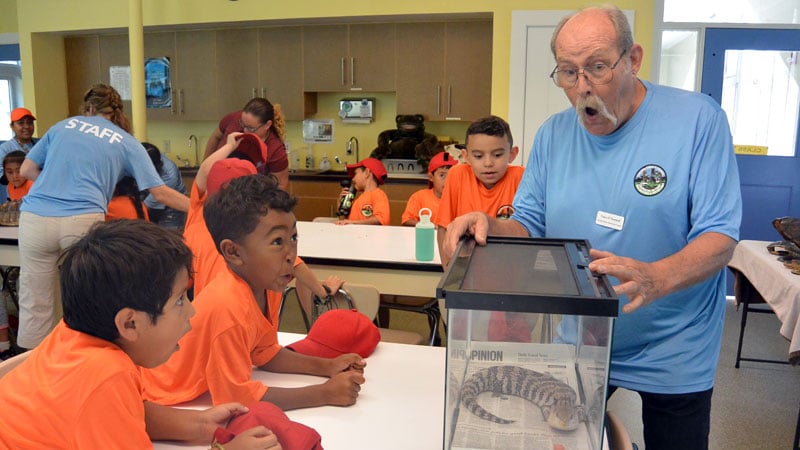
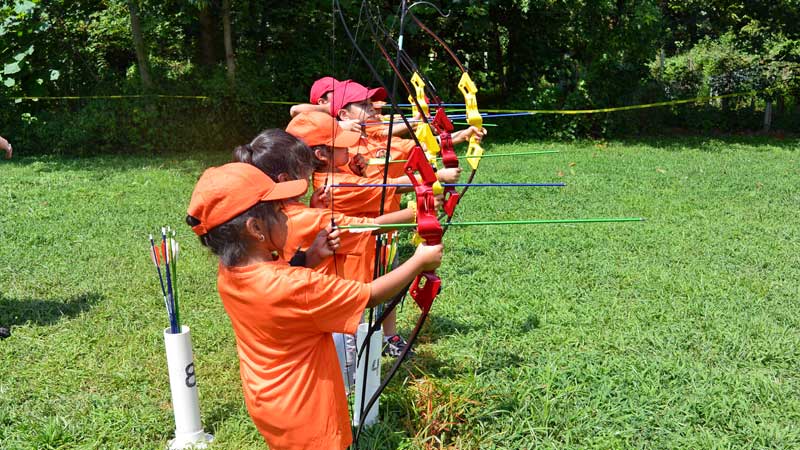
“Our day camp provided children with positive and fun experiences that build character, new friendships, and a sense of belonging that will last beyond the summer,” says CCCBSA ScoutReach District Executive Roseline Vazquez Diaz, who helped spearhead efforts to plan and facilitate five full days of discovery-based learning for nearly 70 male and female Cub Scouts ages 5 to 11.
Throughout the Stroud Center’s streamside forests and meadows, eight dens of Cub Scouts rotated through interactive learning stations in archery, crafts, nature, sports, and water science to earn electives along the Cub Scout advancement trail and develop meaningful scout skills. Stroud Center education staff coordinated and taught activities for the water science and nature stations, which included special guest educators from Pennsylvania State Parks and Tri-State Bird Rescue and Research, while 36 CCCBSA adult volunteers facilitated the four remaining stations.
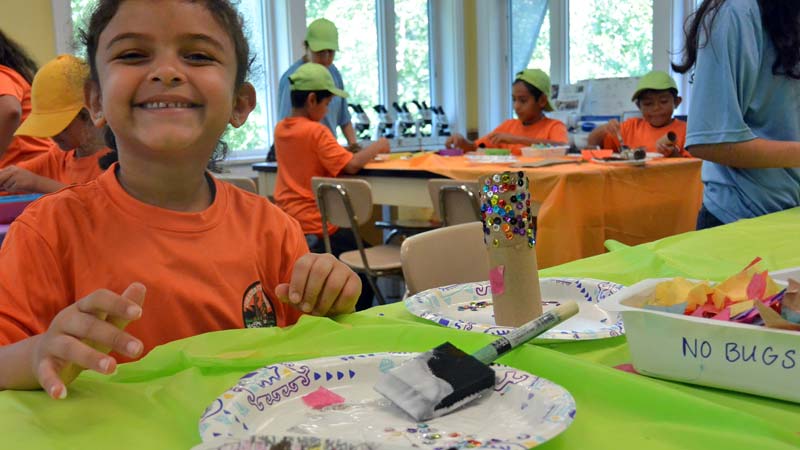
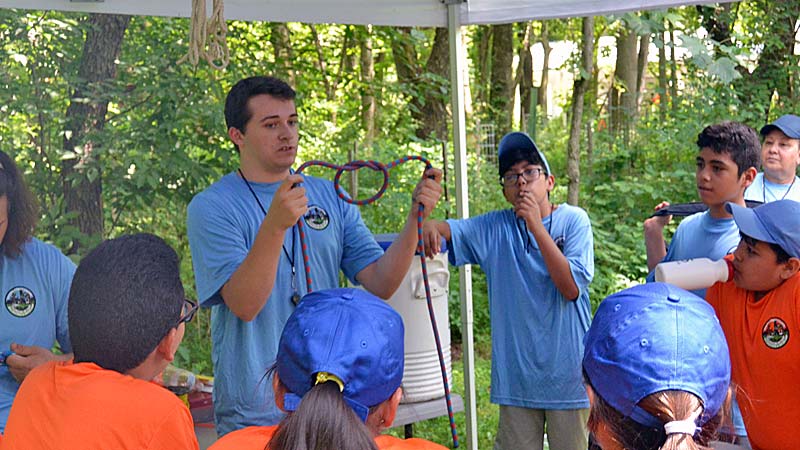
Vazquez Diaz says opportunities like ScoutReach Day Camp, which are as immersive as they are low-cost, change the quality of life for families.
“We are serving young people and families in Chester County who come from very difficult and extreme situations in their daily lives that do not allow them to be in traditional BSA programs,” explains Vazquez Diaz. “We at ScoutReach have the mission of helping ensure that culturally diverse youth have the opportunity to join the Scouting program, become good leaders for the future, and develop the ability to be independent.”
In addition to participating in hands-on, minds-on learning stations, campers took part in a career-readiness Q&A with water science professionals representing the Stroud Center’s watershed biogeochemistry, ecosystem ecology, engineering, fisheries biology, microbiology, and watershed restoration groups. Costa Rican scientist Diana Oviedo, Ph.D., and Spanish scientist Marc Peipoch, Ph.D., demonstrated to bilingual campers how careers in STEM (science, technology, engineering, and math) can transport you across the globe.
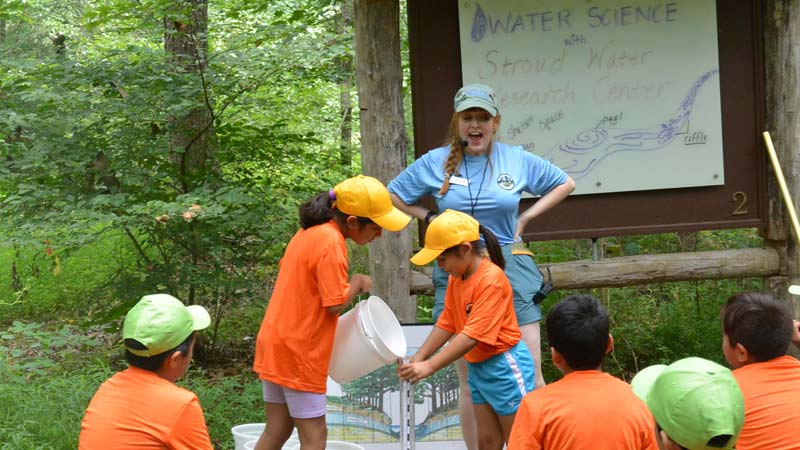
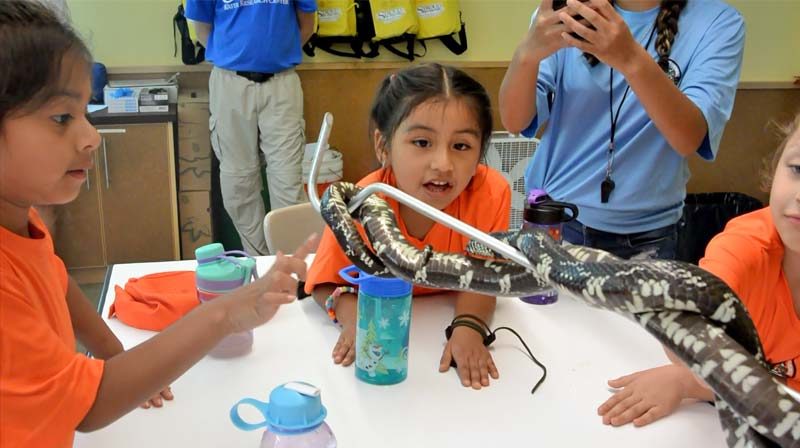
Dolores Hagerstorm, board member and former president of the CCCBSA, believes this exposure and experience will stick with children for a lifetime.
“With support from [the Stroud Center’s] staff and facilities, these five days expanded the Scouts’ thinking beyond themselves, beyond their daily experiences in the cities and towns where they live,” says Hagerstorm, who has dedicated 40 years to adult scouting. “Their minds are bigger now because they’ve seen a world bigger than them.”
That world includes an environment that Scouts now understand how to protect and take care of, Hagerstorm says, just as that environment protects and takes care of them. In partnership with organizations like the CCCBSA, the Stroud Center is helping build stronger communities and empower young stewards, one bigger mind at a time.
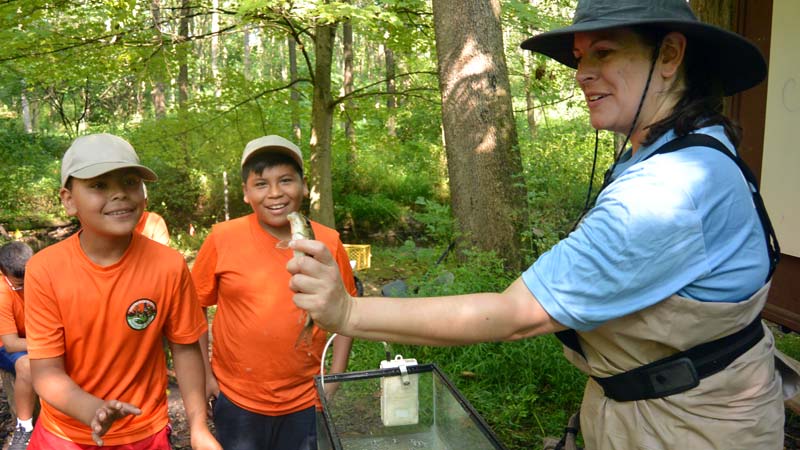
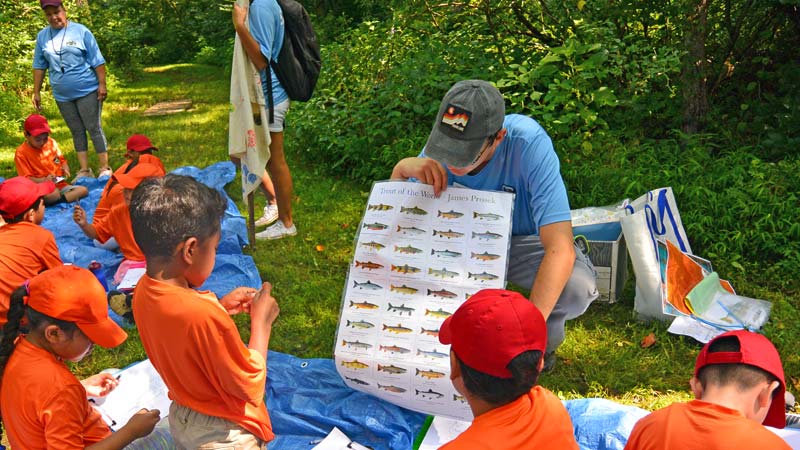
Stroud Water Research Center offers programs year-round for Girl Scout and Boy Scout groups. Dens, packs, and troops will learn about stream and watershed health through fun hands-on educational activities while earning a unique Stroud Center activity patch. Because of a generous gift, all programs for Boy Scouts are now free. Learn more

